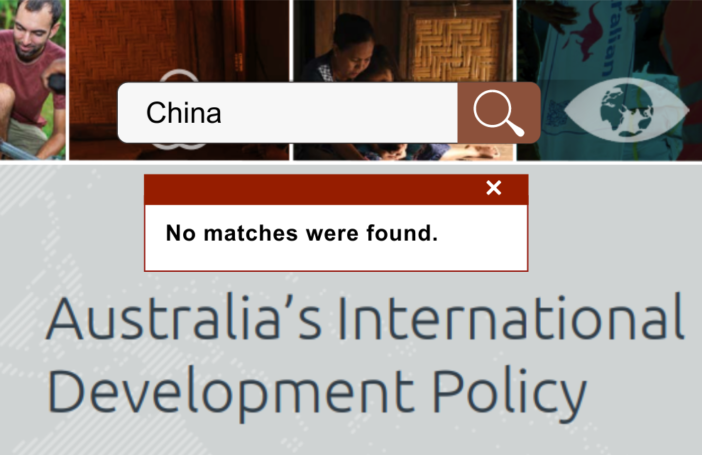This is a further instalment in the Pacific Family Matters series.
The Australian election saw the Albanese Labor Government win by a landslide, providing much-needed climate change policy continuity. In fact, the final Senate results reveal that Labor is able to pass legislation with only the support of the Greens. This ability should be considered a privilege and needs to be utilised to deliver significant progress on climate change and our collaboration commitments to Pacific leaders.
So how will the Albanese government measure up with the Pacific family on climate change?
First, ambitious domestic climate action means taking Pacific leaders’ call to action seriously and acting decisively. This would help advance Australia’s standing as a credible climate change actor both regionally and internationally.
Ahead of the next climate change negotiations in Brazil (COP30) in November, countries are due to submit their updated Nationally Determined Contributions (NDC). These pledges outline a country’s contribution to the collective effort to prevent an average global temperature rise of more than 1.5 degrees Celsius and are expected to be more ambitious than their previous iteration. Currently, Australia’s pledge of a 43% reduction by 2030 is not aligned with the “1.5” goal. This is a crucial number to many Pacific Island countries whose very existence is on the line, as impacts exacerbate with every 0.1-degree temperature rise.
The Australian Climate Change Authority will provide its recommendations for updated interim targets to the Australian government in the coming months. The government has the opportunity to double down on domestic climate change policy by, for example, strengthening the safeguard mechanism, providing incentives for more uptake of electric vehicles, investing in infrastructure and continuing to promote Australia as a renewable energy superpower. This shift needs to go hand-in-hand with de-commissioning of end-of-life coal-fired power plants and discontinuing the expansion of gas and coal extraction. If Australia is serious about its commitment to “transition away from fossil fuels” as agreed to by all Parties in the UN international climate summit in Dubai in 2023, the government needs to show leadership on energy transitions both inside and outside its borders.
Second, and crucially for the Pacific, is the provision of climate finance, particularly grants for adaptation. The last climate summit, in 2024, saw agreement on a new climate finance goal (NCQG) of US$300 billion annually from public and private sources and at least US1.3 trillion by 2035 to be achieved through the Baku to Belém Roadmap. The exact pathway to this outcome is still unclear and is expected to be crafted in Brazil. What is clear, though, is the persistent and huge climate finance gap, particularly with extreme aid funding cuts by the US administration under President Donald Trump and a fiscal refocus in Europe on national security.
Australia’s “fair share” compared to that of other developed countries, and based on its historical responsibility as an emitter, is currently rated as “critically insufficient”. A large portion of Australia’s aid is allocated to the Pacific region, but investments in climate change adaptation efforts, let alone loss and damage, are inadequate to meet island countries’ needs as they grapple with the increasing impacts of cyclones, floods, drought and sea-level rise.
The aid budget — through which Australia provides all its climate finance — is likely to shrink, so alternative sources of funding need to be explored that are new and additional. Drawing on the work of the Global Solidarity Levy Task Force, the option of a small solidarity contribution from a high-polluting industry such as aviation is worth exploring. Airplane levies are a low-cost option and easy to implement with very low administrative costs. Many Pacific Island countries have long implemented environmental levies on their incoming air travel and are making use of the funds to protect their environments. Fiji, for example, earmarks part of such revenue for its Planned Relocation Trust Fund, assisting communities to relocate due to rising sea levels. A solidarity contribution, as little as A$5 per international economy ticket and A$15 for a business class ticket, could provide a continuous funding stream for local community projects. It is a miniscule amount compared to overall ticket prices but it could make a big difference in small islands.
And, despite the narrative in some quarters about a deep divide on climate policy within the Australian population, a recent Lowy Poll results show that 84% of Australians back climate action, giving the government a strong mandate to act.
Third, at the recently concluded Third UN Ocean Conference in France, Tuvalu’s Prime Minister Feleti Teo called for an “an international treaty on sea level rise, to enshrine the legal rights of affected states and people”. Australia has already entered a first-of-its-kind agreement with Tuvalu: the Falepili Union Treaty. It recognises the statehood, sovereignty and rights of the people of Tuvalu, even if the physical land … should be rendered uninhabitable by sea level rise” and, most importantly, includes permanent migration pathways based on the threat of climate change impacts. Australia could play a stronger leadership role in this space by supporting Tuvalu’s call to action globally and regionally, and by exploring the possibility of similar agreements with other Pacific Island countries.
Finally, Australia is bidding to co-host COP31 with the Pacific Island countries in 2026. With Turkiye also having an eye on the presidency and a fierce stand-off at the intersessional negotiations in Bonn in June, an outcome is now likely to be announced in November in Brazil. If successful in its bid, Australia should use COP31 as a platform to advocate for and advance the Pacific family’s climate concerns and amplify them on the global stage.
COP31 is the time for bold action after three consecutive COPs hosted by autocratic and fossil-fuel producing states. This year’s summit will probably just pick up the pieces from the NCQG negotiations and the stalled talks on how to transition away from fossil fuels. At best, it might take a few tentative steps to ratchet up NDCs amidst global unrest and upheaval. Indeed, Brazil’s COP30 President André Corrêa do Lago has indicated a focus on fulfilling existing pledges rather than creating new ones.
Australia is fully committed to its bid with the Pacific. In advocating for big ideas, the Australian government has an opportunity to emerge as a global climate leader at a time when others are pulling back, despite the urgent need for action. Based on the recent security agreement between Australia and the European Union, it is safe to say that Australian climate policy leadership within the Indo-Pacific would be a welcome development for European governments and the UK. Australia’s strategic position in the region is well regarded and, with the US becoming an increasingly unreliable partner in climate and other matters, the Albanese government has a chance, if not a responsibility, to step up and deliver the best it can for the Pacific family.
This is part of the Pacific Family Matters blog series which explores priorities for the re-elected Labor government’s engagement on development issues with the Pacific Islands region. The series draws on the expertise of the Pacific Research Program, a consortium led by the Department of Pacific Affairs at the Australian National University (ANU), in partnership with ANU’s Development Policy Centre and the Lowy Institute.





I’m struggling to reconcile how Australia can “emerge as a global climate leader” when our domestic activities provide no such evidence. On the domestic front, Australia has approved the closure of several major coal-fired power stations (e.g. Liddell (2023), Eraring (planned 2025), and Yallourn (planned 2028)). However, these emissions reductions are being exceeded by the approval and advancement of new fossil fuel projects such as North West Shelf oil and gas project, Scarborough gas, Barossa gas, and Mount Pleasant coal expansion which will add tens of millions of tonnes of CO₂-equivalent annually, and billions over their lifetimes. Even with our push for EVs, promotion of RE and adaptation finance, our domestic emissions cannot be ignored. Is the bar so low for global climate leadership?